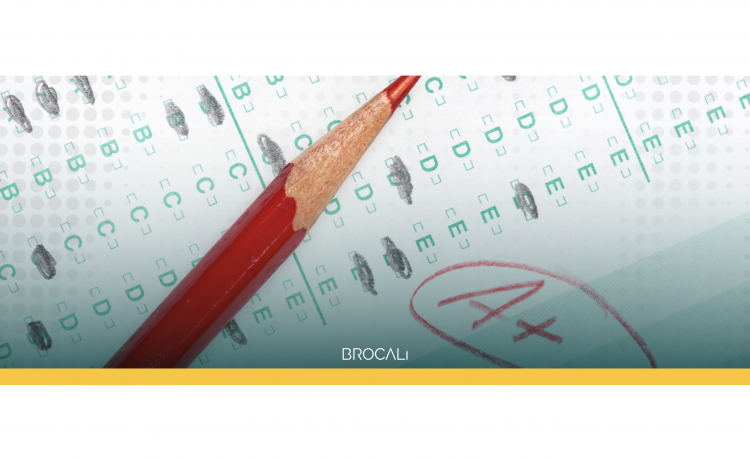
Brocali's Blog

What Is Changing About Pass/Fail the USMLE?
The USMLE Step 1 Exam is a critical part of the medical school journey for prospective and current medical students. It was historically used by residency programs as a metric for evaluating applicants and was often a factor in determining which specialty a student could confidently apply.
On January 26, 2022, USMLE Step 1 score reporting shifted from a three-digit score to a simple pass-fail. The intent behind the change was to address concerns about student well-being and to promote the evaluations of students for residency programs in a more holistic way.
This change will have both potential benefits and challenges for students, as well as potential changes to the medical residency matching process.
Why is the USMLE Step 1 Scoring Changing?
The USMLE Step 1 scoring is changing from a numerical score to a pass/fail grading structure in order to support student well-being, address concerns about stress, and promote a more holistic approach to evaluating medical students.
The intent behind the change is to reduce the amount of pressure placed on students to achieve a competitive score and allow them to focus more on their medical school curriculum. Additionally, the shift will give residency programs the opportunity to evaluate applicants more holistically, taking into account both academic and personal characteristics.
What does it mean for students if they USMLE Step 1 Pass fail?
For students, the change from a numerical score to a pass-fail grading structure for the USMLE Step 1 Exam means a reduction in pressure to achieve a competitive score. The focus is now more on being a competent and well-rounded individual rather than just a good test taker.
With the lack of a numerical score, residency programs now have the opportunity to evaluate applicants more holistically, considering both academic and personal characteristics. However, it is likely that there will be an increased emphasis on USMLE Step 2 CK scores, so students must prepare for this exam during their clinical rotations.
In addition, international medical students may have to employ different strategies to stand out in residency programs.
What Can International Medical Graduates (IMGs) Expect From the Change?
International Medical Graduates (IMGs) can expect a number of benefits from the recent policy changes.
1) Expansion of the J-1 visa waiver program to more than 30 slots per state, allowing foreign trained physicians to practice in the US.
2) Immigration and green-card delays have been reduced so that IMGs can receive their residency positions faster.
3) State licensure parity means that IMGs will have the same professional rights and privileges as their US counterparts.
4) Discrimination against IMGs is being addressed through policy changes and education.
5) Greater access to GME funding for more residency positions for IMGs.
6) The credentialing process has been made less cumbersome for IMGs, so that they can provide care for underserved communities without being hindered by bureaucratic barriers.
What USMLE Changes May Unfold in the Residency Match Process?
1. Medical students must now focus on other aspects of their application to stand out from the competition.
2. Program directors may have to adjust their selection criteria for residency applicants due to the switch from numerical to pass-fail scoring.
3. Medical students may experience less stress due to the shift away from numerical scores.
4. Program directors may have difficulty evaluating applicants with numerical scores versus those with pass-fail results.
5. Residency programs value leadership roles, team sports, volunteer work, and involvement in organized medicine and health policy advocacy.
Conclusion
The conclusion of this discussion is that medical students should not rely solely on numerical scores from the USMLE Step 1 exam to stand out in their residency applications. Program directors will be looking for evidence of clinical knowledge, work ethic, and commitment to leadership roles, team sports, or volunteer work.
Read also: Purpose and Benefits of passing USMLE Step 1 Exam?